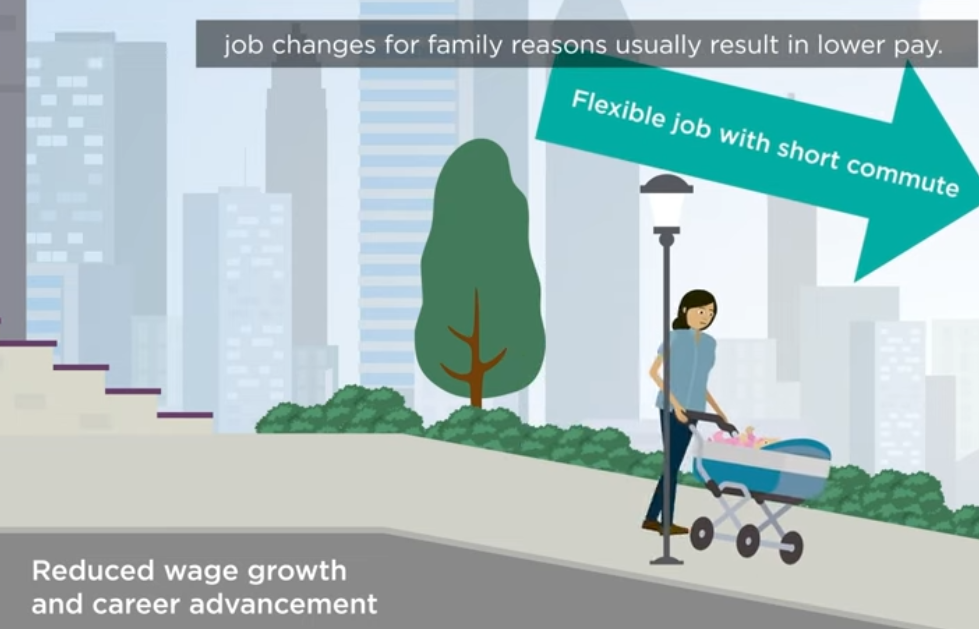A new study by Dr Silvia Avram and Dr Daria Popova at the Institute for Social and Economic Research at the University of Essex with Professor Susan Harkness at the University of Bristol, has unpicked the reasons why women fall behind on the career ladder and still have lower pay than men, identifying motherhood as a factor affecting job choices. The study found that conversely parenthood has little or no impact on men’s choices and decision to move to a better job.
Understanding disparities in the rates at which men and women’s wages grow over the life course is critical to explaining the gender pay gap. Using data from Understanding Society, the UK Household Longitudinal Study, they looked at difference in rates and type of job mobility for men and women, with and without children, over a period of ten years from 2009 to 2019. They were able to look for what might influence the evolution of wages, including moving employer for family reasons, moving for wage or career-related reasons, and changing jobs but remaining with the same employer.
Despite overall levels of mobility being similar for men and women, the study found important differences in the types of mobility they experience, with mothers most likely to switch employers for family related reasons and least likely to move for wage or career reasons, or to change jobs with the same employer.
While job changes with the same employer and career related employer changes have large positive wage returns, changing employers for family related reasons is associated with significant wage losses.
These findings show that differences in the types of mobility experienced by mothers compared to other workers provide an important part of the explanation for their lower wage growth and play a crucial role in explaining the emergence of the motherhood wage gap in the years after birth.
Read the paper, Gender Differences in Job Mobility and Pay Progression in the UK
Watch our short animation explaining the study’s key findings here
